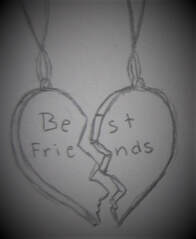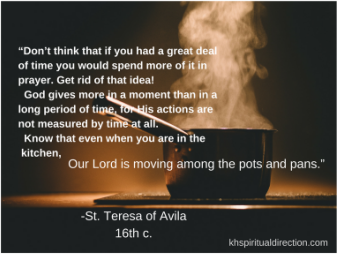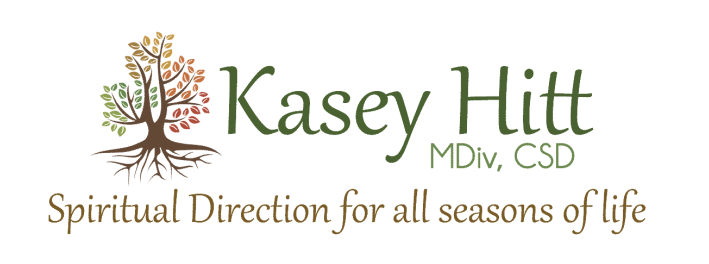|
I told a friend the other day that as more political signs go up around me, the angrier I become. Most assuredly I wouldn’t be as angry if they aligned with my own ideology…how telling! My reaction reminds me of the immense draw to live on the level of agreement. Do I agree or disagree? If the latter, criticism comes quickly followed by detaching from the author, politician, doctor, Facebook friend, family member, neighbor…write them off…case closed, act as if everything is fine. But this kind of dissociation never works for me in the long run. It's not case closed. Pretending, ignoring, and stuffing feelings ultimately turns into back pain and headaches which is not loving myself (which then leads to the inability to truly love my neighbor). See last week's post for more on loving oneself. The growing rift, polarization, and lack of neighborliness leads me to ask, “Who is my neighbor?” I can’t help but think of Jesus’ parable of an enemy coming to one’s rescue in a time of need (see The Good Samaritan). Or his words in the famous Sermon on the Mount, “You have heard that it was said, ‘Love your neighbor and hate your enemy.’ But I tell you, love your enemies and pray for those who persecute you…" Matthew 5: 43-44 Ugh. How do you actually do this? Realizing that we see our own reflection in the faces of others—both the shadow and the light—can add to the pressure. The shadow within is hard enough to face, it can be twice as hard when I see it in the face of others (if I’m even willing to admit I do)! Who wants to admit that the narcissism detested in someone else can be a mirror reflecting the narcissism residing within one's self? Note: This doesn’t excuse or downplay the narcissistic actions by the other. When Jesus boldly expanded on his Jewish lineage saying that not only are our neighbors those who belong to our family/group and those on the margins of our family/group, but so are our enemies, it must have stunned his audience. Even though it was consistent with his teachings about the Kingdom of God and his prayer that life on earth reflect life in heaven, we sadistically like the idea of some people not being included. But the love of God includes everyone. Jesus reminds his listeners, right after telling them to love their enemies, that God sends rain for those who do right and those who do wrong. And like the moon reflects the sun, we're to reflect God. So how do we integrate the shadow and light of others, especially that of our enemies? And why should we even try? When it comes to why, enemy-hating takes up a lot of space in our inner world. It crowds out what is life-giving. Jesus knew the fruit that hate bears. It depletes our inner energy and resources, crippling our ability to live a life of Love within and without. “Hatred destroys finally the core of the life of the hater…hatred tends to dry up the springs of creative thought in the life of the hater, so that his resourcefulness becomes completely focused on the negative aspects of his environment.” Whoever we hate holds power over us. When we release the hate, we release their power over us, and free up that energy to love. Hatred, like love, may start out small (one act or one person), but it quickly overflows into everything and everyone.
So again, what are we to do? How can we begin to release criticism, anger, and hate? Since curiosity is helping me release the anger and criticism toward myself, I’ve been experimenting with curiosity in the shift toward loving my neighbor/enemy. What might happen if I chose curiosity over criticism with my "neighbor"? Another political sign went up, this time with a flag on the porch of someone I’ve never met. Going past their residence, I looked at the signage and their house with curiosity:
After a few wonderings & questions (without providing hypothetical answers!), I found my face softening and a willingness to actually have a real conversation rather than a hardening and hiding in my anger. Honestly, I was surprised. I experimented with a friend when the conversation turned to politics and we wanted to criticize a group of people. When we shifted to curiosity, the critique faded. Surprise again! The most recent opportunity happened when someone disagreed with my schooling choice for my kids. I asked some questions instead of focusing on defending myself. They began asking questions. We left the conversation still having differing opinions, but smiling and looking forward to future conversations. Curiosity may be the spiritual practice for this season. May it be a step on the path of peace, a way of wisdom, a beginning in embodying the love of God, especially toward all of those putting up political signs!  Finding yourself triggered more than usual with thoughts and feelings of rage, resentment, and judgment? I know I am. And it's not just toward others (we'll focus on that next week)! What are we to do with inner voices of critique and judgment, chronic dissatisfaction and frustration? How do we not let ourselves be beat up by them? Is there another way? Jesus once summed up the entire Scriptures by saying, “'Love the Lord your God with all your heart and with all your soul and with all your mind.' This is the first and greatest commandment. And the second is like it: ‘Love your neighbor as yourself.’” (Matthew 22:37-38) “Loving your neighbor as yourself” is to “loving the Lord your God,” as the moon is to the sun. The former reflects the latter. Like the line from his prayer to the Father, “Thy Kingdom come, Thy will be done, on earth as it is in heaven,“ Jesus teaches and prays for wholeness—inner and outer continuity, authenticity, alignment. Oneness with God, self, and neighbor. “Loving yourself” is inextricably linked to “loving your neighbor.” Think of those best friends necklaces with two halves, both are needed to make the heart whole. So let's begin with our part--ourselves. Tell me, how are you loving yourself these days? How would you characterize your inner conversations? Are they best friends necklace worthy? Is your inner landscape characterized by harmony and peace? What/who is your inner world reflecting? Given I resonate with a One on the Enneagram, inner critique and compulsive improvement of myself (& others) along with their counterparts of rage and resentment are easily accessible. They are often lurking, looking to supplant the inner voice of Love. When that happens, I cannot relax so compulsive doing is often the result (and a red flag). Recently, someone brought up a class series I taught a while ago and said that what continues to stick with her most was how I started every class with the invitation to be curious. I usually write these three phrases at the top of the dry erase board or handout: “Be curious. Be compassionate. Be aware” Given the subject matter is designed to go deeper, I know most classes will challenge our surface-level survival self (our ego). In response, people can expect to experience resistance (and all manner of feelings). That's not bad. There's wisdom in the resistance if we look. Given what we're presented with on a daily basis right now, there's plenty of subject matter to challenge our survival selves, isn't there?! At any moment, fear may be triggered, or anxiety, anger, resentment, rage, envy, sadness, guilt, shame, even numbness and avoidance. Instead of harmonious, our inner world begins to look like a daily war zone where there isn't the space or ability to give and receive love since it's all about surviving the day. What can bring peace to the inner chaos? Certainly not more "shoulds"! Fortunately, God offers us paths of peace. One that I've found is choosing curiosity over critique. It almost immediately relaxes inner tension, opening me to the inner voice of Love. Remember, it was Moses’ curiosity that caused him to stop what he was doing and take a closer look at the burning bush. From inside the fire, the Voice of Love spoke to him. Try it. Be curious.
Once becoming aware of the tone, physical sensations, and triggers, then the next time you experience them, rather than continuing down the path of self-condemnation which can lead to inward or outward lashing out, pause. Turn your compassionate gaze toward that inner burning (or numbness) and be curious:
Let's play with this concept of curiosity with ourselves. Next week we'll consider curiosity with others. Recently my daughter started fencing. It's been the perfect socially-distanced sport...masked, gloved, and if you come within 6 feet, you get stabbed! Still in her uniform after practice one day, she put on her helmet, pulled out her épée, and walked outside as I sat on the porch. She began practicing her stance. Noticing it had changed since June, I asked her what she had been doing differently. "Well, my coach said I would get tired if I was constantly holding my left arm up in a flexed position and he pointed out how I kept rising into the stance. He told me to relax my arm and settle into the stance instead." Then off-the-cuff she added, "So don't rise to the challenge, Mom, relax into it!" Rather than "en garde," it caught me "off guard"! "Don't rise to the challenge, relax into it!" Her words and the image they created have been in my mind ever since. Why? Well how often have you heard or been taught to "rise to the challenge"?! And are you, too, worn out from all the rising? So let "en garde" be a reminder. Be ready for action by relaxing into your stance. Paradoxically, this allows one to better (and more naturally) be in position to meet the challenge, whether it's with épée in hand or not. How might you "relax into rather than rise to the challenge" today? Do you know the difference between Self-Comfort and Self-Care? Yesterday I presented “Resilience for Spiritual Caregivers,” a slideshow from The Seattle School of Theology and Psychology (I attended their online webinar in May). It's so important for those of us caring for the souls of others to not neglect our own. Yet it’s all-too-common for neglect to happen, especially during times of anxiety/trauma/crisis. One insight from The Seattle School’s Resilient Leaders’ Project was the differences between the coping behaviors of “Self-Comfort vs. Self-Care”--- Both are very much a part of our specific stories (what we turn to for comfort and care differ for each of us). Both have their place. Self-Comfort behaviors are… -short-term solutions which are often detrimental to our long-term health. -often isolating, done in private. Self-Care behaviors… -support our long-term well-being. -increase our sense of connection to self, others, & God. Binging on Netflix all day may help me cope for a short while by forgetting my own story. But losing myself in the stories of others while sitting on the couch is not what my mind, body, and soul are deeply craving. It may be okay in the short-term; it’s not a good long-term solution. In fact, self-comforting behaviors can turn into unhealthy patterns (addictions) if not recognized. A pandemic and the current political climate will certainly bring out the need for self-comfort (which can be a cause for self-shaming)! Rather than criticize ourselves, we can try being curious and compassionate instead. We might ask questions like: -Why do I try to comfort myself with food (or where did I learn to comfort myself in this way)? -What gets in the way of me doing what is healthy for myself? Two self-comforting strategies that had turned into unhealthy distractions for me:
The first I argued was a way to keep me connected to others but honestly, it had become more of a life-draining rather than life-giving habit. My 9-year-old encouraged me to remove it, so I did. I’m reaching for my phone less and present to my kids more without the pressure to narrate my days with posts & photos. The second offered a way to zone out alongside my spouse once the kids were in bed but kept me riled up until the point of exhaustion! So rather than the news, I’m now taking the hour before bed to read fiction and draw with color pencils...my whole being (& my family) is affirming this choice! I still need my time watching Masterpiece dramas as well as baking (& eating) fun desserts, but I recognize these are self-comforting strategies. Binging on either day-after-day will have negative consequences! Art, Zumba, Centering Prayer, poetry, juggling, delighting in healthy meals, dancing to 80s music with my kids, chats on the porch swing with my spouse, socially-distanced socializing with friends, talking with my Spiritual Director on the phone...when engaged in healthy and not legalistic ways, are self-caring behaviors that support me as I walk in the way that leads to Life. May you be curious as to the ways you comfort and care for yourself. Since everything is interconnected, the ways you care for yourself (or don't) will impact those in your care! I’m happy to join you in discerning what will best support your journey (especially during this time of global anxiety). Schedule a 30 minute or 1 hour session of Spiritual Direction &/or Dreamwork. Learn more about The Seattle School of Theology & Psychology's Certificate in Resilient Service (going online for the first time!).  Driving my kids back to Tennessee from my rowdy and fun family's 65th reunion in Pennsylvania several weeks ago, I asked my kids to tell me about their favorite moments of our trip. My shy 10-year-old daughter said, "Well, my favorite thing is that I surprised myself...I actually carried on conversations with people! I was even funny. AND, I surprised myself because I actually enjoyed it!" Her surprise was met by my own, for I was not only overjoyed but completely caught off-guard, not expecting to hear this out of my quiet, catlike girl, especially not as her favorite part of the trip! It was a good reminder of how we often pigeonhole ourselves and others. The term "pigeonhole" was first used in 1864 to describe placing a person or thing in a narrow or confined category that resembles a literal hole a pigeon roosts in. As you can imagine and see from the picture, the borders of the pigeonholes tend to be pretty rigid so it's up to the one roosting to leave the safety of the confined space. Speaking from experience, we often let our expectations keep us from discovering and entering into the "new thing" the Spirit of God is inviting us to discover, whether it be within or without. Instead we keep rehearsing (& posting) old stories and viewpoints. A look over our social media posts or reflecting on recent conversations inside our heads or with others can reveal a pigeonhole or two we roost in. But might our continued pigeonholing be fear in disguise? For once we venture outside a particular pigeonhole we can no longer dwell within that hole again. After my daughter said she surprised herself by enjoying a conversation, she can no longer claim she's too shy to carry on a conversation (or enjoy doing so)! Bursting out of the pigeonhole takes courage...what a beautiful spiritual practice she invited me (and now you) into! Let's try it: * Take a moment and look at the above pigeonholes. Maybe even sketch them out and put a word in each box that you would use to describe yourself (begin with yourself then branch out to another person or situation). * Now let the below words from Isaiah 43 or II Corinthians 5 blow through your pigeonholes. “Forget about what’s happened; don’t keep going over old history. Be alert, be present. I’m about to do something brand-new. It’s bursting out! Don’t you see it?" "...we don’t evaluate people by what they have or how they look. We looked at the Messiah that way once and got it all wrong, as you know. We certainly don’t look at him that way anymore. Now we look inside, and what we see is that anyone united with the Messiah gets a fresh start, is created new. The old life is gone; a new life burgeons! Look at it!" * Whether experienced as a gentle breeze or wild wind, stay with it for a few moments. Notice which words are being ruffled. You may experience this as a feeling of resistance or fear around a particular word, you may have immediate knowledge as to which word is being blown forward, or you may be more visual and imagine how the words are affected. * Is there a particular pigeonhole you're being invited to step out of? Write it down, pray, and tell someone! This will help you spread your wings and fly, carried by the currents of the Ruach, the Holy Wind. And, you may even find, much to your surprise, you enjoy it!  More than I thought. In 2009 I had emergency back surgery for a ruptured disc that caused the worst nerve pain I have ever felt...paralyzing lightning down my leg and out my right toes leaving me screaming. After the surgery, I'd hoped the muscle pain and sciatica I had experienced on and off since high school would finally be gone...it wasn't. I did physical therapy (having already done chiropractic). Again I was hopeful...it didn't help. Whenever the pain would hit, I'd chalk it up to accidentally bending or twisting and tweaking an old basketball injury. It would have me either in bed or on the floor with my feet up on the couch for days. I thought my active life of hiking and carrying stuff (like my own little girl) was over. I (& those around me) started treating my back gingerly, making sure I did not lift or do anything that could trigger that familiar shooting pain. You can imagine what I looked like whenever I walked and sat down or did anything that included my back (amazing how much does!). One night at a breathwork class, after observing me, the instructor told me to read John Sarno's The Mindbody Prescription, saying it would help. I thought this was laughable. I'd undergone the knife and physical therapy, how could a book help? Undeterred she told me how it had helped a friend with my kind of pain. At the end of our time she said, "You're so young, I just don't want you to be in pain the rest of your life." What did I have to lose? I read it. I haven't been on the floor or in bed due to back pain since. Seriously. That was 8 years ago! Over the past eight years, beginning with that book, I've learned three things: My physical self is interconnected with all other parts of myself. How I am spiritually affects how I am emotionally which affects how I am physically and all can affect how I am relationally. What's happening relationally can affect how I am mentally and emotionally and physically and so on. If we choose to dissect and isolate any of these when we have dis-ease or pain in any given area, we miss ways of healing that come when we consider the whole of us. A lifetime of being a "good girl" coupled with perfectionism affected my body. It led to the suppression of anger and other unwanted feelings which finally erupted in physical pain. My unconscious thought physical pain a better choice than emotional pain. Locating an old area of injury and a socially acceptable place of pain (back pain is what ulcers used to be!), that's what it chose. It's interesting the games our minds can play (thinking that they're helping us)! Seeing God as a Divine Task-Master perpetuated my good girl-perfectionist cycle. Since we become like the God we adore (as I mentioned in last week's post), my inner critics had no problem replicating this God-like perpetual drivenness to accomplish and improve. Be better. Try harder. Be (or at least act) perfect. And it's no surprise that snippets of Scripture would often run through my mind to back up these "commands"! Anytime I fell short, which of course I did since I'm human, I took the feelings of anger and shame and stuffed them. Eventually my body would no longer "play these reindeer games" (it began warning me in junior high but it took me a long time before I would or knew how to listen!). Now my body is my friend. I view it as part of the whole. It tells me the truth. When I feel nerve pain begin in my toe, I know that if I don't tend to what feelings are running under the surface, it will soon start in my back. My God-created body has invited me to not only reflect on my God-created emotions but even my image of God. As my image of God has undergone healing and transformation, guess what? It's affected my mind, emotions, relationships, and yes, my body. Thank God for that gift of back pain.  I am grateful for freedom. And to those who have made my freedom(s) possible. I am grateful I have the right to vote and worship God how I choose. I am grateful I got to marry who I chose. I am grateful I do not live in daily fear in or outside my home. And yet in the midst of all of my gratitude this July 4th, I am reminded of Frederick Buechner's words about peace in Wishful Thinking: "...we are homeless even so in the sense of having homes but not being really at home in them. To be really at home is to be really at peace, and there can be no real peace for any of us until there is some measure of real peace for all of us. When we close our eyes to the deep needs of other people, whether they live on the streets or under our own roof-and when we close our eyes to our own deep need to reach out to them-we can never be fully at home anywhere." I think the same can be said about freedom. Can there even be real peace without freedom? Will you join me this July 4th in asking the question, "Who is not free yet?" Who is not free to worship how they choose? Who is not free to marry who they choose to? Who lives in fear inside/outside of their home? Who has no voice in religious, political, and business institutions? It shouldn't take too long to identify at least one person if not an entire group of people. Then with the voice of the Holy Spirit and the entire tradition of the Holy Scriptures urging us on, let's take the next step and do something about it. Like those who gave their lives for our country's freedom. Then this will truly be "the land of the free and home of the brave."  Certainties. My early spiritual life revolved around, even depended on them. Taking my cues from respected authority figures, I lived by the motto, "Just tell me what to do and I'll do it." I loved a good black and white answer. Right beliefs. Right actions. This wasn't limited to what I should theologically believe. I had a lot of "shoulds," from food to parenting. Constantly searching for, collecting and then, more often then not, spewing certainties...ugh...talk about exhausting! Authenticity is important to me so that brought another layer of exhaustion when what I thought I was certain about did not align with my intuition! What was I to do? Baruch Spinoza, the 17th century Dutch philosopher wrote of three ways of knowing:
All have their place. I had a good theological container growing up. The problem became when I did not feel the freedom to step out of the container to dialogue and chose to get really good at staying in the initial "box" (which is the Land of Certitude). Why didn't I? It doesn't take long to notice that when you move from Tradition to Reason to Intuition, you begin to step out of safe, socially acceptable boxes. Questioning what you've been told is true can be scary. Not only is it uncomfortable, your fear can be well-founded as you read about those "heretics" who did the same thing in ages past (i.e. who wants to be burned at a stake literally or even metaphorically?!)! But as Paul wrote to those in Corinth, "Now the Lord is the Spirit and where the Spirit of the Lord is, there is freedom" (II Corinthians 3:17). I no longer see freedom in staying in an authority decreed box of certitudes (Jesus didn't either). Refusing to enter into dialogue with our most important beliefs and deepest questions does not bring life. Sure we may not be crucified or burned at a stake or attacked by internet trolls, but to stay in a box isn't living life at its fullest (as Jesus invites). Now we don't have to burn the box. Jesus spoke to and within his tradition. Instead we can step out to get a better view of the tradition, ourselves and the question we're asking. This can lead to a deepening of one's own faith and a tradition which may offer an even better starting place of knowledge for others! "In all affairs it's a healthy thing now and then to hang a question mark on the things you have long taken for granted." I couldn't agree more. It offers three freedoms or permissions: To engage other voices and ideas. My former authority-pleasing self cringed the first time I saw the above quote came from Bertrand Russell, the 19th c. philosopher and mathematician, whose personal conclusion was that he could not be a Christian. Voices like Russell's need not be ignored or feared. We have freedom to listen for life and truth everywhere, use discernment (a later post will offer discernment questions) and come to our own conclusions. My doubts and letting go of certain doctrines, like penal substitution, have happened to draw me closer to Christ. I also trust that God provides guidance and correction along my path so I am free to dialogue with the whole gamut of beliefs, opinions and experiences. And I've come to appreciate the Celtic saying, "Everyone has some of the wisdom." To ask "dangerous" questions and listen to our God-given intuition. I can dive deep into the soul rather than skim the surface of things. For me, one of those "dangerous" questions for the past decade has been, "What beliefs of mine or the church's are superstitious or fear-based?" Last year I named my journal "Fearless Adventures with My Intuition" just to encourage venturing into any "off-limits" theological areas and ask questions I had been afraid to which led to discovering a variety of ways of listening to my intuition (something I felt was stifled early on). As I look back I can see that it's actually been the Holy Spirit (who is Truth) who coaxed me out of the box and into the questions! To enter and even embrace the "Cloud of Unknowing." It's a holy place. Admittedly, it can be uncomfortable (and even scary). Especially for a church leader or spiritual director (although the latter is typically more comfortable with the silence found there)! Being in a place of not having answers requires trust. We are invited to trust that God is guiding us into deeper truth even if we cannot articulate it yet. Our hearts can be at peace with those in-between states, rather than fretting to find another certainty to fill the empty space (and satisfy our ego by having an answer to give others). The "Cloud of Unknowing" offers gifts that are deeper than words and gifts us to be a safe place for others' questions and doubts. In spiritual direction, you are free to explore. I welcome your questions and doubts. Most likely I will not have answers. I want to accompany you in stepping out of the box rather than give you a different one to step into. We'll have soul-shaping conversations as we dialogue with Scripture, reason, tradition(s) and experience. We'll listen to ways your body and imagination are speaking. Then I'll join you in the "Cloud of Unknowing" until that Voice coming from outside (but also through) us brings revelation. Which could be the freedom to let go of some certainties!
 My mom has always kept a prayer list on her fridge. I know a lot of "prayer warriors" who daily present people's requests to God. But I don't. I'm grateful for the "prayer list praying people." I know I can contact them to add my request knowing they will routinely lift each name and situation to God. I'm just not one of those people. That kind of praying is too heavy for my shoulders. I read nothing of Jesus or the apostle Paul keeping running prayer lists. Although I think we'd agree that Jesus was truly present with whoever was in his presence and Paul offered prayers whenever someone came to his mind. I just don't think the latter's "pray without ceasing" was about cycling endlessly through a list. After wading through the guilt of not wanting to and not being able to pray like others, I finally discovered a way of intercession (praying for or on behalf of someone) that better fits me. And my shoulders recognize it as the light kind of burden Jesus spoke of. Intercessory prayer takes different forms. Rather than prayer lists, for me it's "presence" and here's what it looks like: Presence when with a person. When I sit with you as a spiritual director, I ask the Spirit of God to reveal, direct, and guide you. As you talk, I listen to the holy invitations in your life. I enter into silence on your behalf willing to listen and receive whatever is offered. In short, I give you my full attention. My hope is the same when listening to a friend in casual conversation. And if you're family, well, I continue to work on it...sometimes I'm more present than others! Presence when a person is brought to mind. Over the years I've found that when someone is brought to my mind, I later discover it's at the precise moment when prayer was needed. A conversation has come up at a later time or I've felt nudged to go beyond prayer and contact the person. Even when we haven't been in touch for years and I have no idea of their need, contacting them has always revealed something was indeed going on that needed prayer! So know, if your name or face crosses my mind or you show up in a nighttime dream, I take it as an invitation to intercessory prayer. Presence with requests for prayer. If you ask or email me to pray for you (and please do!), I'll pray right then or soon after...maybe with you, usually silently or actually emailing you my prayer. Then I'll let it go, placing you and your request in God's hands and trusting that if I'm to pray for you again, the Spirit will bring you to my mind. If I only pray for you that one time, I cannot think of better hands (or shoulders) to entrust your burden to (much stronger and gentler than my own)! As 14th century saint Hildegard of Bingen once said, "God hugs you. You are encircled by the arms of the mystery of God." And on your behalf and for you, I believe this to be true, whether I pray for you once or one hundred times.
 One of the most burdensome, guilt-inducing concepts I was ever introduced to was the daily quiet time. Imagine a young girl who sees God everywhere and in everything. Suddenly she's taught she needs to set aside a certain amount of time to spend with God (preferably in the morning) in a certain way (verbally, either spoken or written after reading "the Word"), and saying certain things (i.e. ACTS- Adoration, Confession, Thanksgiving, Supplication). Now please understand there's nothing inherently wrong with this practice. The trouble comes in thinking it's one-size-fits-all...that's when pastors, parents and mentors can accidentally place an ill-fitting yoke on a child. Back to the young girl...as she got older, there were accountability groups and partners to help keep her quiet-times on track. Given this was taught to be of paramount importance to the Christian life and, given this little mystic was also a rule-follower and authority-pleaser, she tried really hard. I tried really hard. I had "catch up days" written in my junior high journal when I did double, triple or quadruple the quiet-time to make up for lost days. I began to carry guilt about missing days, missed days or not doing it right when I wasn't missing days. I carried this into college. I felt pride when I had not missed and could tell my accountability group or partner. Its taken me almost two decades to let go of the quiet-time guilt. Spiritual direction is not about having more or better "quiet times!" Ironically, I invite people to befriend the quiet. However, it's more of a return home, offering space to remember the practices that best connect them with God. The truth is, the mysticism of my early childhood was a perfect way for God to "speak" to a little Type-A rule-follower. And it still is. St. Teresa of Avila, the 16th c. Christian mystic, once wrote: "Don't think that if you had a great deal of time you would spend more of it in prayer. Get rid of that idea! God gives more in a moment than in a long period of time, for His actions are not measured by time at all. Know that even when you are in the kitchen, our Lord is moving among the pots and pans." In spiritual direction we discern how "our Lord is moving among the pots and pans" and inviting each of us to be aware. It could take the form of a typical daily quiet-time for you or it may be more like Brother Lawrence's "practicing the presence of God." Perhaps it's a combination. Like me, you may have different practices depending on the season of life (or the liturgical calendar). We'll take a look at how God uniquely created you to connect with the Sacred Mystery before well-meaning Christians stepped in assuming you didn't have a spiritual life.
|
AuthorKasey is a scarf, ball and club juggling spiritual director just outside of Nashville, TN. Play helps her Type-A, Enneagram 1 personality relax, creating space for poetry and other words to emerge. She also likes playing with theological ideas like perichoresis, and all the ways we're invited into this Triune dance. Archives
September 2023
Categories
All
|
By clicking “Sign up for E-News” I consent to the collection and secure storage of this data as described in the Privacy Policy. The information provided on this form will be used to provide me with updates and marketing. I understand that I may modify or delete my data at any time.


 RSS Feed
RSS Feed

